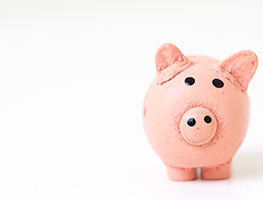A budget allows you to figure out where you are at and to help you get to where you want to go financially. It will help you to keep track of your money coming in and going out. In addition, it will allow you to set financial goals for yourself.
It may take some time and effort to go through your finances, but the end result will be the fact that you can make savings for your household. A key rule is to have a budget that allows you to spend less than you are earning on a consistent basis. That way you can make valuable savings.
Assess your situation
This is a process that requires you to set aside some time to go through and identify what you are earning and what you are spending your money on. It’s a good idea to gather together as many receipts, bills and payslips for the last 12 months as you can before you start this process. That way, you have the facts in front of you rather than basing your figures on guesswork.
Using your receipts and payslips make a record of your income and spending for the past 12 months. Alternatively, you may prefer to start now and keep track of your financial records for the next few months so you can assess where you are at and what changes you may need to make.
You need to record as much detail as possible. It should include all the money coming into your household on a weekly, monthly or yearly basis. This should include your salary, benefits or bonuses. You also need to include all your outgoing expenses. These figures will let you know if you are already making savings or if you need to curb your expenses.
Set some goals
It’s sensible to have some goals in mind when you are planning a budget. That way you have specific reasons in mind when you are sticking to it. You may be saving for a deposit on a home or for a holiday. Find out how much your goal will cost and work out how much you need to save for it. That way when you are looking at your budget you can calculate how much you need to save and how long it will take you to achieve your goal.
It’s a good idea to stick a picture of your goal somewhere in plain sight to remind you of why you are using a budget planner.
Drawing up a budget
Now that you have some records in front of you, you need to start creating a budget. Put your balance sheet under the microscope. Where can you make cuts?
Can you shop around to get a better deal on your car or medical aid? Can you plan your weekly / monthly food shopping more effectively so you can stretch your money further? You can often make lots of little savings by switching your repayments on certain bills to monthly rather than annually. These are fixed expenses but you can sometimes reduce the amounts.
Sometimes you will have to look at cutting extras such as magazines or coffee dates in order to make savings. It’s useful to remind yourself of the reason why you are saving when you feel resentful about this.
Budget saving tips
Set up your bank account so that you automatically have a set amount of your earnings deducted into an account that you cannot access easily. That way, you don’t have to even think about it.
Limit your take-always and eating out to special occasions. It is much cheaper to eat at home and prepare a nutritious and tasty dinner for a fraction of the price.
Shop around for your insurance, credit card and phone packages to ensure you’re getting the best value for money.
Cut up your store cards and limit your credit cards to one or two. Focus on paying down this debt as much as you can to avoid paying unnecessary interest.
Track your spending daily. Set up alerts on your phone to indicate any money coming into or leaving your accounts so you can keep track of your spending. This will not only give you a better picture of your spending, it will also make you focus on whether or not you really need to buy the item in question.
Make sure you have savings for emergencies. Whether it is unexpected illness or unemployment, it is always a good idea to have savings set aside specifically for this kind of occurrence. A good rule of thumb is to have the equivalent of six months of your income saved up in case you need to draw from it unexpectedly.














